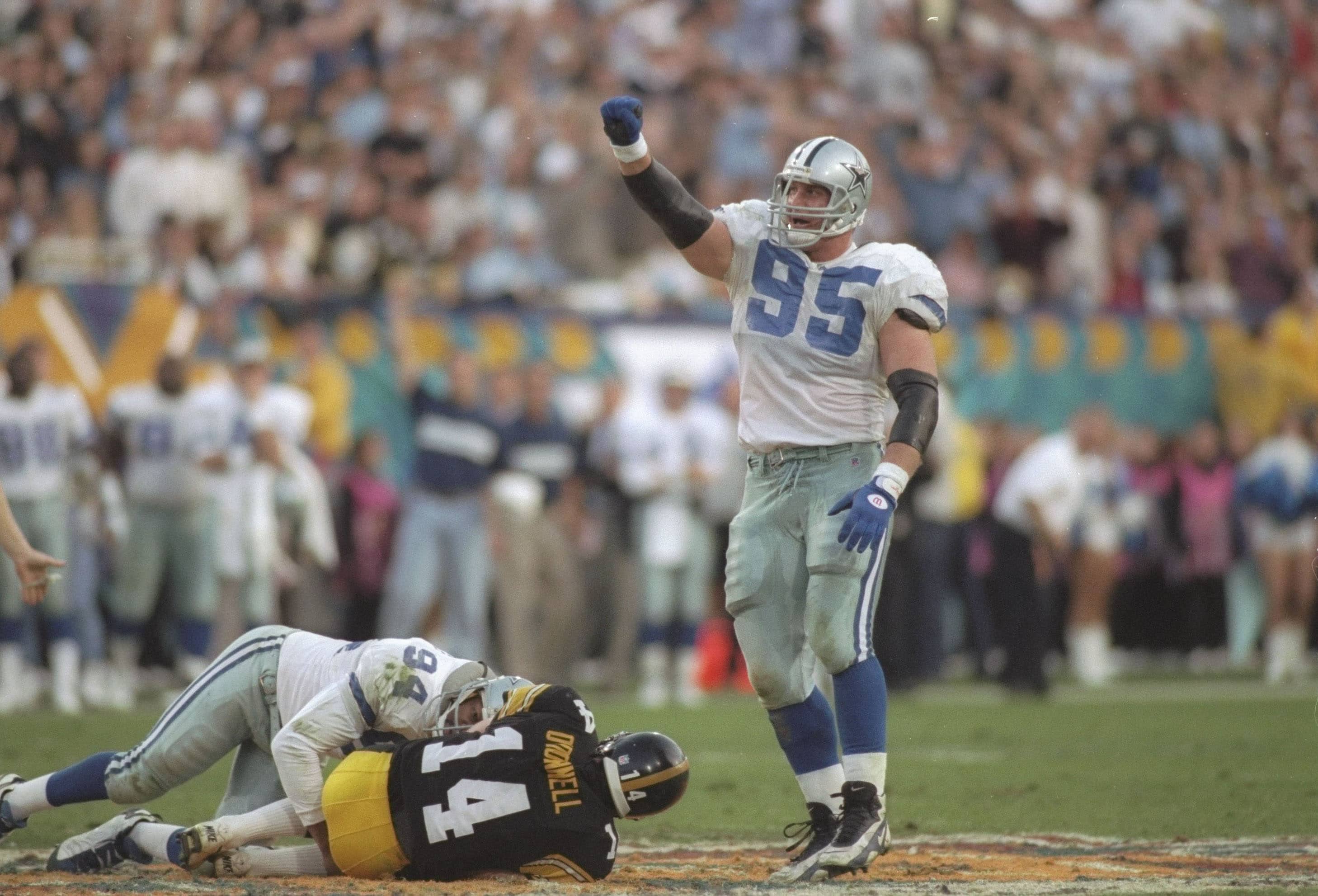KBS: Chad, you were a three-time Super Bowl champion for the Dallas Cowboys. You discovered that being a true champion requires more than just physical strength. What is it?
Chad Hennings: The primary thing about being a champion is the aspect of character. For me that is the glue that pulls everything together — who we choose to be as individuals.
KBS: Growing up on a farm in Iowa, your parents instilled into you the ability to stick to things and see a job through. How did that work out?
Hennings: In fifth grade I thought it would be cool to join the band and play the snare drums. But none of my buddies went out for it. I didn’t like to practice. I didn’t want to pay that price to be proficient. I wanted to quit. But my parents said, “Nope. You made a commitment. You’re going to finish it out.” That lesson also translated into wrestling. That was extremely challenging. You think about quitting every day because of the physicality of the sport and having to lose weight when you probably don’t have the weight to lose. It was tough, but after two years I became the state champion.
KBS: What was life like on the farm?
Hennings: We had a large cattle feed lot operation, so we fed cattle, detasseled corn, walked soybeans pulling weeds and of course, baled hay. I was driving tractors and combines when I was 11 years old — something many today would never think of, particularly living in an urban environment. That’s the beauty of growing up in rural America. Our farm has been in the family for over one hundred twenty-five-plus years. For me that is where I learned what the American work ethic is all about — you know, getting out of bed when you don’t feel like it. I learned a lot of life lessons vicariously by watching my father and brothers and how they led their lives.
“
You made a commitment. You’re going to finish it out.
KBS: Did you play football in high school?
Hennings: Going to a small school, you pretty much play every sport. So I ran track and I played baseball for a couple years, but my two main sports were always football and wrestling. In football, starting in junior high, I think I played every position: quarterback, defensive back, defensive line, linebacker, running back. Due to my size I ended up being a defensive lineman and a tight end. Believe it or not, I was also a kicker. I actually made all-state as a punter.
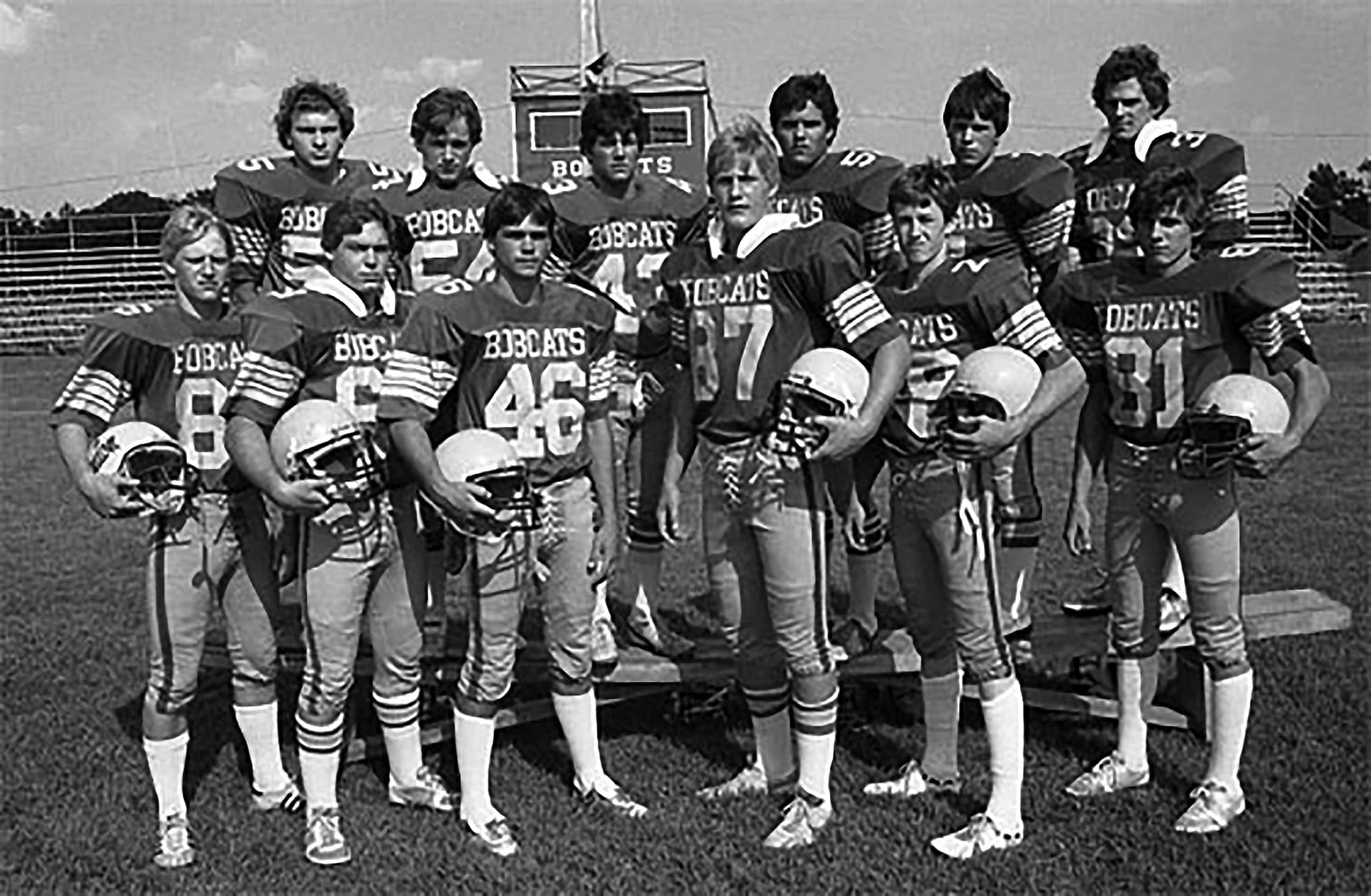
In high school, Chad played football for the Benton Community Bobcats.
KBS: You received the honor of being accepted into the U.S. Air Force Academy to play football. It was not long before pro scouts were looking at you. After your sophomore year at the Air Force Academy, you had to make a tough decision — throw away the hopes of potentially playing pro football or to continue on seven more years with the Air Force with a chance at being a fighter pilot. What decision did you make?
Hennings: I would have had a minimum of a five-year commitment to the Air Force after graduation. And this is where I thought to myself — I had just made all-conference my first year — were there opportunities [for me] to play professional football? I had to look at what I wanted to be in my life. I wanted to be a well-rounded individual. So for me it was the aspect of staying at the Academy, being able to have those experiences of academics, military training as well as pushing myself physically that would make me a more well-rounded individual. Ultimately, playing in the NFL was never really an option at that time with my Air Force Academy commitment.
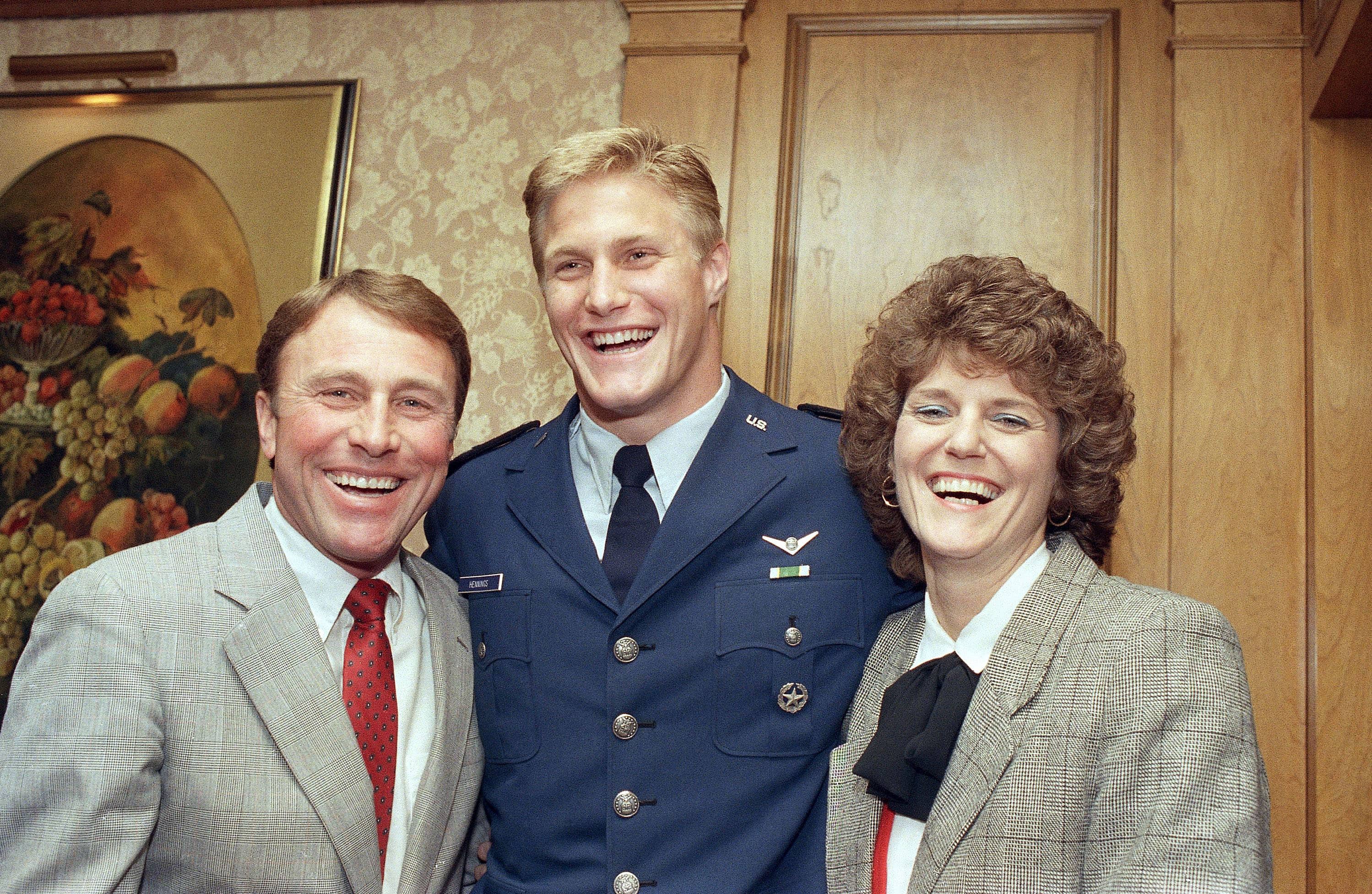
Chad with his parents, William and Barbara Hennings. 1987 at a news conference in New York after being named the winner of the Outland Trophy.
(Associated Press/Marty Lederhandler)
KBS: So you made that decision and you did get a chance to fly the jets, but something happened during your first combat mission.
Hennings: It was during the first Gulf War, in the springtime of 1991. We were ferrying jets from the base where I was stationed in England and flying those to Incirlik, Turkey, which is outside the city of Adana. I was flying my initial ferry flight over, and I was just south of the island of Crete in the Mediterranean. I ended up losing an engine. I lost oil pressure in my number two engine. A gasket or seal had blown and it was spewing oil. With the A-10 being an underpowered aircraft it can get a little hairy flying with just one engine. It was a matter of working with my three other wingmen to be able to go through the emergency procedures, communicate what the situation was to air traffic control, and divert off our flight path to a naval air station on the is land of Crete. You fall back on the training you’ve simulated many times, and it’s technically, another day in the office.
“
I ended up losing an engine… technically another day in the office.
KBS: That would be a great opportunity to panic right there.
Hennings: When you go through those situations you don’t think about the what-ifs because you would be what I would call mentally constipated where you can’t think. So you’re there to do your job — to support your wingmen and to support whatever the mission might be for the guys on the ground. You want to accomplish your mission.
KBS: That incident helped inspire you later in life to form a ministry called Wingmen Ministry. Can you tell me about that?
Hennings: Many men in our culture today are isolated. They buy into this cultural myth that to be a true man you gotta stand alone like a John Wayne or a Rambo or a Jason Bourne. But anytime that I would fly a mission in combat or fly a training mission, I never went by myself. I always had a wingman. You had to work together as a team. I take that same analogy and metaphor and utilize it to relate to men that we need relationships. As a Christian, I wanted to make them godly relationships. So our whole thing is to encourage men to form those Christ-centered masculine relationships where you can accept, affirm and hold one another accountable.
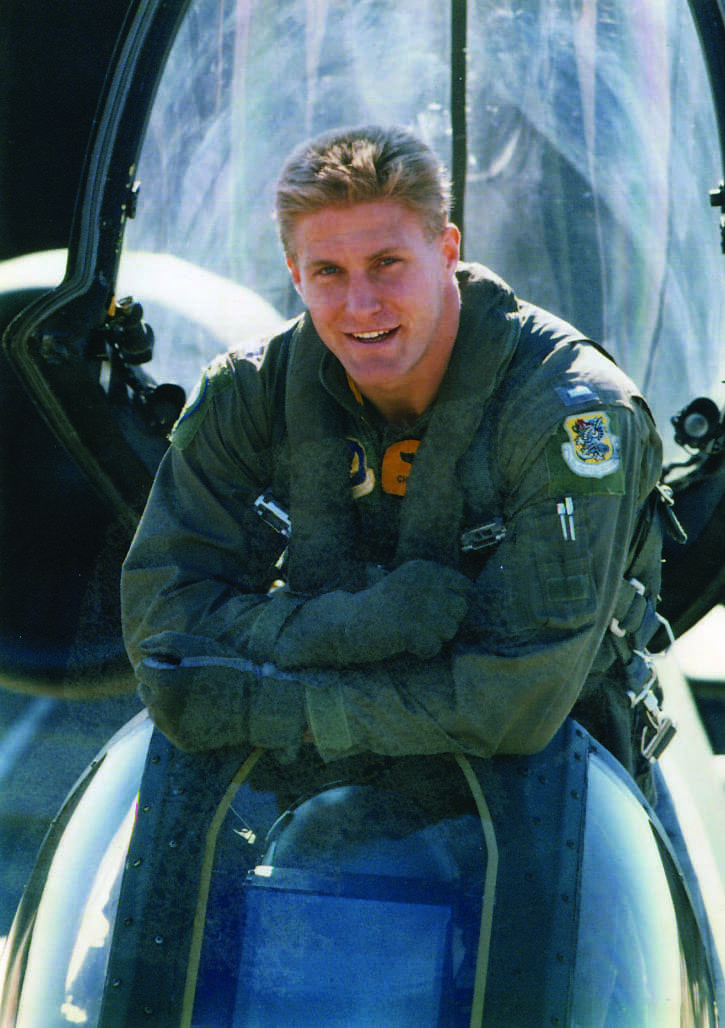
KBS: Chad, what transpired during your U.S. Air Force career that opened the door for you to wear a different helmet?
Hennings: I originally had an eight-year commitment upon graduating from pilot training. Even though I was drafted by the Dallas Cowboys prior to graduating from the Air Force Academy, I would have been 32 years old before I ever had a chance to step out onto the field. But after the first Gulf War, our armed forces went through a reduction in force in 1992 where they waived the commitment, not just for me, but across the board for many others. So a lot of pilots went to fly for the airlines. Some went into business. That basically allowed me to raise my hand and go play for the Dallas Cowboys. The remarkable thing is I ended up flying my last mission in northern Iraq in March of 1992, and I played in the Super Bowl that same calendar year.
KBS: That’s amazing how it all worked out, and the timing was perfect as the Cowboys were primed for Super Bowl success. Can you give us a little taste of what spring training is like for a championship-level NFL team?
Hennings: Jimmy Johnson liked to have very physical practices. It’s not like in the NFL today where they limit physical contact. We hit every day. But what got me wasn’t necessarily the physical contact, it was also a change in the weather. I had been based in England where the mean average summer temperature was 78 degrees. Upon joining the Cowboys, we moved our family to Dallas, Texas, and I went through my first training camp in Austin where it’s probably 95, 98 degrees with 70-plus percent humidity. In a morning two-hour practice, I could lose 14 pounds of water weight. And then getting ready to go back four hours later for an afternoon practice, I would have to gain a ll that water weight back. A lot of times I wasn’t able to make up that delta, so I had to get IVs. For me it was a major gut check.
“
In a morning two-hour practice, I could lose 14 pounds of water weight.
KBS: On TV, the role of the defensive tackle looks simple. You wait for the snap, you run as hard as you can, you try to hit someone with full force — hopefully the ball carrier or the quarterback. But at the championship level, there’s a lot more to it.
Hennings: This was where, alluding to your initial question, being a true champion is not just brute force. There’s a huge mental aspect to the game and a lot of similarities between what I did in the Air Force as a fighter pilot. Just like in football you evaluate film, you study your opponent, you study your tendencies of your own bomb film when you are practicing on a bombing range. You talk with your communications between your fellow wingmen. Those same lessons translate onto the gridiron. In the NFL you study your opponent, certain backfield sets, what were they going to do – was it run versus pass? I-formation? I-over-right? Much like with my wingmen in the Air Force, in the NFL you talk with your teammates. Then after the game you look at your own practice tape over and over to see your own tendencies and how you can improve.
KBS: How important was team unity when it comes to making it to the playoffs and ultimately to the Super Bowl?
Hennings: Football is the ultimate team sport. You have offense, defense and special teams. And that was the beauty of those Cowboy teams that I played on in the early ‘90s when we won three Super Bowls in four years. It was the ultimate team. Everybody took their individual goals and aspirations and made them secondary to the team goals. Our whole thing was to win Super Bowls. Not just make it to the playoffs, not to be NFC’s champs, but to go the whole distance. Guys would work in the off-season. They would do whatever it took. There was no animosity between offense, defense, specials. Everybody knew their role and they executed their role to the utmost. And that even included coaches as well as front office administrative staff. I have never been around an organization that was that focused and that driven and that purposeful, aside from the Air Force, of course. It was a great learning experience for me about what it takes to succeed.
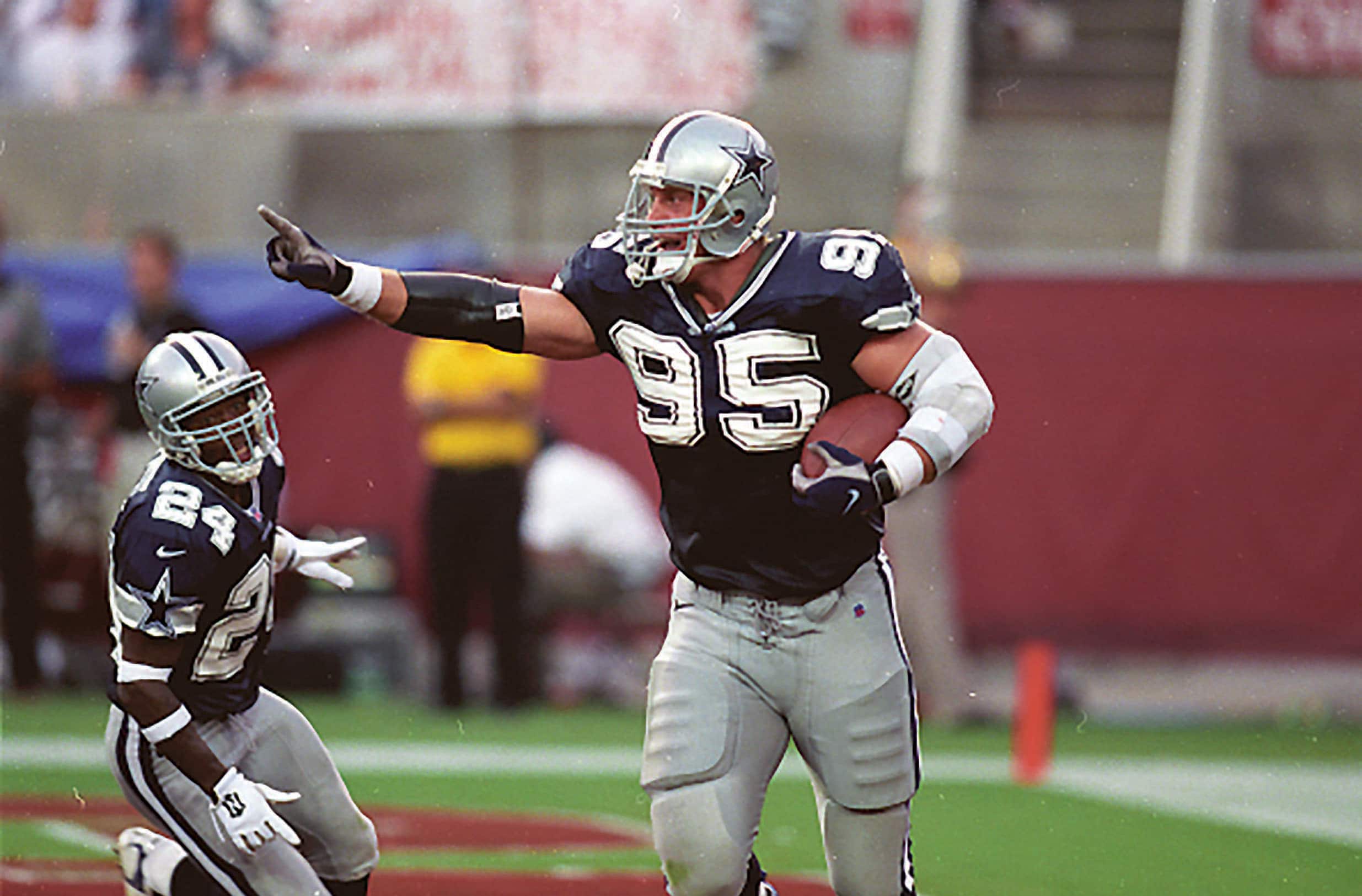
KBS: A couple years ago, we had the opportunity to interview your fellow Dallas native, Clayton Kershaw, the ace pitcher for the Dodgers. I want to ask you the same question that I asked Clayton. You made a lot of money when you were in sports. Does money buy happiness?
Hennings: Money definitely does not buy happiness. Everybody has heard stories or read the stories about the individuals who have made tens of millions, if not hundreds of millions of dollars, and then they’re bankrupt. For me, I always knew that my legacy was not going to be based upon the material accumulation of assets or accomplishments. My true legacy is the people that I have been able to impact for the good within my family, my children or business relationships as well as those individuals that I mentor and are impacted by our Wingmen ministry. For me, that’s what grounds me. My identity is not wrapped around what I did. My identity is as a Christian, as a believer in Jesus Christ — that’s who I am and that’s what motivates me to impact others for good.
KBS: And if your identity is wrapped up in money, it’s never enough.
Hennings: Its always one thing, the next deal, or it’s the next accomplishment. Pascal said that inside every man is a God-sized vacuum that only God can fill. People try to fill that need with so many different things, whether that be substances, relationships or money, but it is never enough.
KBS: That seems to run contrary to a culture today that can push people toward either immediate or deferred gratification.
Hennings: You know, it’s the aspect of I’ll be happy when… I’ll be happy when I graduate, or I’ll be happy when I get married, or I’ll be happy when I have kids or I’ll be happy when the kids leave. But character goes back to who do you choose to be? To me character and integrity are choices.
KBS: Chad, I want to flip back to the military for just a second. Can you touch on PTSD? How have you seen people successfully deal with this?
Hennings: Post-traumatic stress, PTS, is often associated with combat, but everyday people can get it too. A lot of times post-traumatic stress can occur where someone that you love has been compromised or injured in some way that it was a traumatic experience for you. I see a lot of guys through my Wingmen ministry that were abused: sexually abused, verbally abused, physically abused as kids where they couldn’t control it. Or they may have seen their mother or a friend that went through that. This can create a post-traumatic stress. Many have found that a big therapeutic option is open communications, talking, sharing your experience with someone that has empathy. Not necessarily to fix it, but someone that you trust that you can share openly with just to help you process through. So that’s why, for me, it’s important to have strong relationships, close relationships with individuals that you can be transparent with and share those feelings.
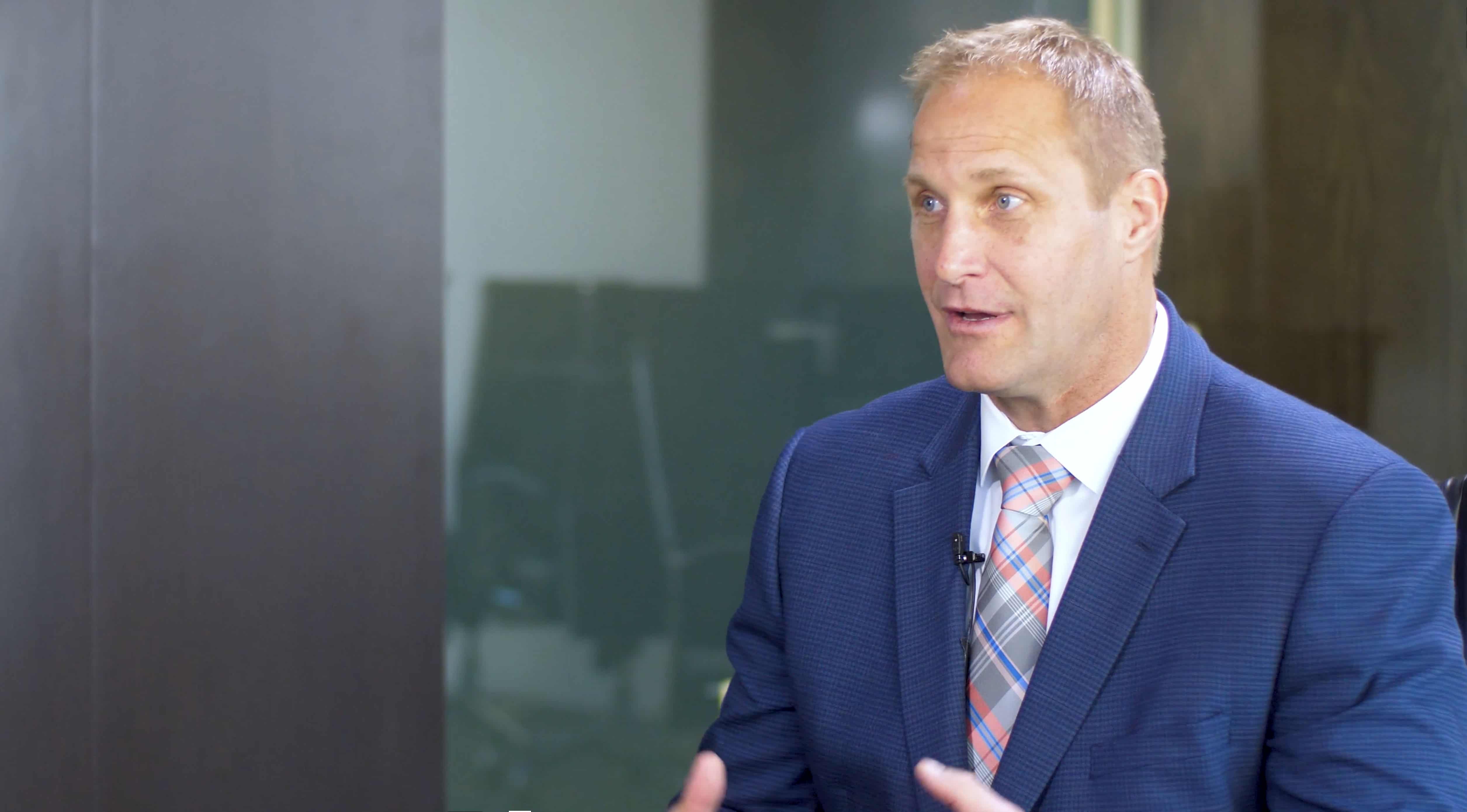
KBS: Chad, you’ve been able to encourage people with respect to physical fitness, but you are also a big proponent of mental fitness.
Hennings: I firmly believe that readers are leaders. I have always been a student of history, of reading biographies of individuals that from a character standpoint have done it right, whether that be in the military, in politics, in theology or in business. I’m a voracious reader.
KBS: Speaking of books, you have written three books. Can you tell me about them?
Hennings: The first book I wrote was in 1996, after we won our third Super Bowl, called “It Takes Commitment.” It’s more of an autobiographical work. The age demographic would be teenager to young adult. The book covers the concept of commitment and the importance of identity from a faith-based perspective. The second book I wrote was a book called “Rules of Engagement: Finding Faith and Purpose in a Disconnected World.” That was based on a lot of experiences that I’ve had either personally, professionally or from a philanthropic standpoint through my Wingmen ministry. And then my third book that I wrote was called “Forces of Character.” I sat down with 10 people that impacted my life and had conversations with them about their character journey, why is character important and their personal experiences. I spoke with individuals such as Roger Staubach, Troy Aikman, Jason Garrett, Spurs coach Gregg Popovich, Supreme Court Justice Clarence Thomas. I interviewed a survivor of Auschwitz, an international human rights attorney from former communist Romania, an astronaut, a homelessness expert and the CEO for the National Center on Fathering. These were individuals — male, female, black, white, different economic scale of earning a living. I wanted to show that character was ubiquitous and that it is a choice.
“
I wanted to show that character was ubiquitous and that it’s a choice.
KBS: Is success an end game? Or is it a by-product of who you are?
Hennings: Success is totally a by-product. For example, I never set out to be an all-American or to win the Outland Trophy in college. My goal was to be the best defensive lineman that I could be, to help my team. I wanted to do all those things: training, lifting weights, exercising, bettering my craft as a defensive lineman. It’s those little incremental things over time that ultimately led to success. I’ve been around a lot of individuals that want to be in the NFL. They want to be a Super Bowl champion. But there is a big difference between wanting it and actually doing what it takes to get there. It’s hard work, commitment, the ability to overcome obstacles, and keeping life in perspective that exemplifies true champions.
KBS: We’re sitting here in a beautiful office in uptown Dallas. Tell us a little a
bout your real estate company.
Hennings: Rubicon Representation. All of our service lines are around the user. So we are predominantly tenant representation. We also do development, principal sales and municipal incentives. I am one of three principals with 15 brokers that work for us. The majority of our work here is Texas-centric, but we conduct deals all over the country. We just expanded our service offering — we bought a company and we are rebranding it as Coram Management. We do property management, facilities management, construction management services to offer our clients more service lines. We like that aspect of service where the more you can do for your clients the more they will want to stay with you for the long-term relationship. At Rubicon, from a cultural standpoint we’re very intentional about the individuals we recruit. We purposely recruit former athletes whether they played college athletics — baseball, hockey, football — as well as individuals in the military because they are used to being in that culture of being a team player. In the real estate game, it’s a very competitive environment. So it’s important our team knows how to compete, but still be good team players with that aspect of continuing to press on, to be courageous at times and to take rejection and spin it and be self-motivators.
“
…it’s hard work, commitment, the ability to overcome obstacles, and keeping life in perspective that exemplifies true champions.
KBS: So how has the North Texas market been? It seems like companies are leaving the great state of California where I work and coming to Texas.
Hennings: Texas is very business friendly with no state income tax. The tort system has been very pro-business. Our governor and our state leadership have done a great job recruiting businesses from higher-taxed states. We have reaped the benefits of that here, particularly in North Texas. Construction has been at an all-time high, both in the office and industrial sectors.
KBS: KBS has a big footprint here as we have recognized the strengths of this market. As landlords, what are some of the important things we can do to stay competitive on providing space for new tenants?
Hennings: One of the things I always look at are amenities. The millennials have pushed space design to a more open and collaborative office. But I think one of the biggest things that I see on the horizon for building owners to stay competitive is going to be the data component. Having some sort of edge computing micro data center on-site is important.
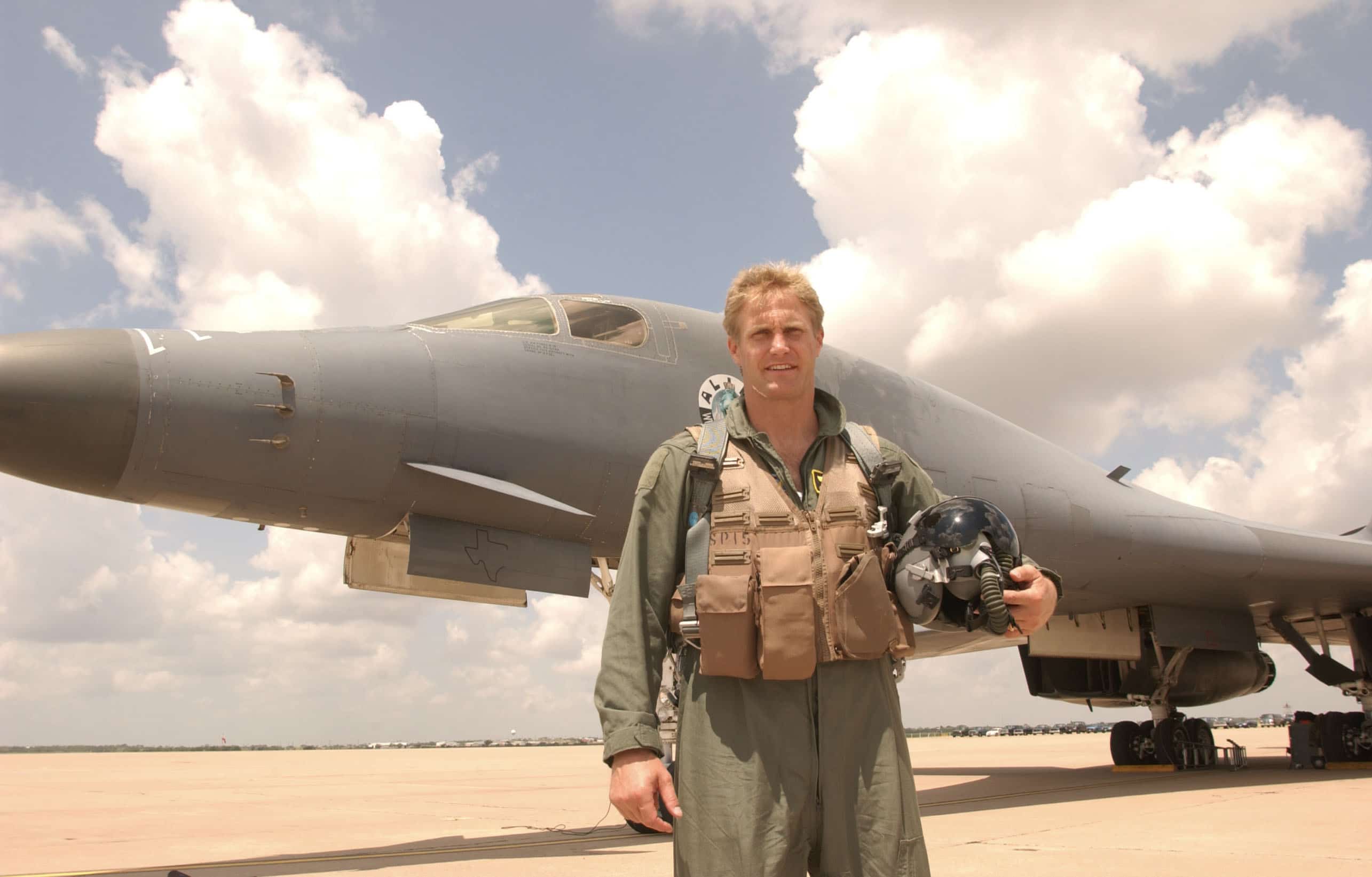
KBS: What advice would you give to fellow real estate professionals who are working in this business that can sometimes, as you mentioned earlier, be very competitive?
Hennings: The best advice I can give is keep your head down. Don’t be worried about hitting home runs — it’s about your on-base percentage. It’s continuing to do those little things, the blocking and tackling,using a sports analogy. Taking care of the X’s and O’s over a period of time, then you’ll see your success and your growth. It’s doing the little things right.
KBS: Chad, thank you so much for your time. You’ve been a huge inspiration to many people. For those who want to learn more about either your speaking ministry or your real estate company, how can they get hold of you?
Hennings: It’s pretty easy: Chadhennings.com.
KBS: Chad, thank you very much and we wish you the best success in 2018.
